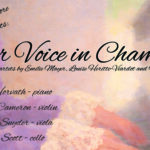Home »

Mankell a consummate storyteller
Book Review
By Derryll White
Mankell, Henning (1996). The Fifth Woman
I know a woman who lived in Africa, who embraced its remoteness and vitality. A part of her lived for mail, letters from Cranbrook, from Kitimat. This volume opens with an African proverb – ‘With love and care the spiderweb weaves its spider.’ Like I am, my friend would immediately be drawn into this thick novel. Mankell is a consummate storyteller.
The story opens in 1993 with the violent death, in Africa, of a Swedish female tourist. Like many travellers of that time, she was staying with nuns, all of whom were also slaughtered. Mankell spares no details of everyday life. His writing is intricate, always involved in portraying a changing Sweden he is not comfortable with. Here the political commitments to law and order lessen, funding for the police dwindles and violence continues to reach new and brutal heights.
For myself, a visitor to Ystad where this novel is set, Mankell’s views can be downright chilling. A woman in the Ystad region receives a letter from an African policeman, telling her that her mother has been killed and her body “disappeared” for political convenience. The novel flows from this seminal point, with macabre incidents and Mankell’s masterful journey through Inspector Kurt Wallender’s mind.
The fabric of the novel is not something I really understood before coming to Ystad. The town is so old, some of the streets as narrrow as when they had been horse and cart paths – that it is definitely foreign country to me. Cranbrook is about 125 years old. The church in Ystad opposite the bookstore Wallender uses was built in the 1300s. It really is a foreign country in the mind as well, and Mankell and his translator Stephen Murray do a superb job of helping the reader negotiate it.
One of the things I truly enjoy about Mankell’s novels is the fact that he does not deny the past, deny memory. He uses history to add richness to characters that are already incredibly well developed. He uses memory to exploit a built environment so old that I, a Canadian from raw and new British Columbia, cannot comprehend it.
Another facet of Mankell’s work which I find truly compelling and amazing, is that he speaks directly to the Swedish populace about social change. He senses things happening in Swedish society that he doesn’t like or agree with, and he has Inspector Wallender rail against these changes. And what Wallender says speaks to all of us. He despairs of a world where commerce rules, where old things including people are thrown away. I cannot think of a North American popular “mystery” writer who identifies and takes positions on social problems in the way Mankell does.
It is also interesting to me, a single man with two daughters, to watch the relationship between Wallender and his daughter, Linda. It grows and changes ass the series progresses. Just as in real life it is never easy for Wallender to nurture and, at the same time, stand back and permit his daughter to grow, make her own decisions. I sometimes make the ultimate mistake (or bestow the highest honour) and place myself in Wallender’s position, struggling without reference to do the right thing. He is smart enough in this volume to realize he must embrace Linda as an equal, an adult in her own right. Woof, how hard that is!
Finally, violence against women! Still such a loaded topic with pc quicksand all around. But Henning Mankell takes it on in this novel, highlights it. Even Kurt Wallender has to come to terms with his anger and frustration, has to realize that in order to have an honourable relationship with his friend Baiba he has to practise anger management. A turning point in the novel, for me, is when the task force realizes that if they are going to wait for the serial killer to run out of abusive men, the murders will NEVER end.
In the end this is a novel that makes me think about life. It leads me to ask questions such as: As a man have I been respectful to women? I think so. I try very hard. Am I involved in the social change occurring in Canada now as it is in Sweden? I think so, but maybe I could do more. The questions go on. I sit here in Ystad, Sweden, and I realize how much each of us has to lose by being uninvolved, ignorant of the change at work on the land, on the people. Mankell is an excellent writer – he forces me to internalize his questions and make them actionable. Yes, read this book.
Excerpts from the novel:
SUICIDE – “Why did he commit suicide?”
Ekberg shrugged. “I think he’d had enough.”
“Enough what?”
“What is it you’ve had enough of when you take your own life? Life itself. The boredom. The weariness that hits you every morning when you look at your face in the mirror.”
POETRY – An old man shouldn’t be writing poems, he thought. When you’re 78 years old, your thoughts are of little use to anyone.
AGE – It was only in the Western world that old people were viewed with indulgence or contemptuous sympathy. In other cultures, age was respected as the period of enlightenment and wisdom.
REGRET – I regret nothing, since it is meaningless to regret.
LONELINESS – Wherever he was, wherever this cement floor of terror had been poured, even if it was floating freely in a universe totally unknown to him, there was no one close by. Nobody could hear him.
AGE – To grow old was to grow lonely. The people who filled your life died off. Even your dogs vanished into the shadows. Soon he would be done. At a certain point in life, everyone was.
AUTUMN – Whole orchestras of silent songbirds would be leaving before the approaching winter, heading to warmer climes. The urge to move on was innate, and their ability to navigate by the stars and the earth’s gravity kept them on course. They sought out the favourable winds, they had fattened themselves up over the summer.
GOD – But the prayers she offered up were not part of a conversation with God. In a chaotic and absurd world, God was the ultimate absurdity. The mark of the world ran an absent God.
POLICE – A criminal investigation is like a construction site. Everything has to be done in the proper order or the building won’t hold up.
BRUTALITY – Atrocity and insanity don’t always go hand in hand.
TRUTH – Wallender knew that most truths were both expected and unexpected at the same time. It was simply a matter of knowing how to interpret the connection.
WAR – Berggren wrote that the war was justified because the profits were good. In a more personal reflection not repeated elsewhere in the diary, he’d asked himself whether he could have achieved the same wealth if he had stayed on in Sweden working as a car mechanic. His conclusion was that he couldn’t …. with great zeal he continued to participate in his war.
RACISM – Berggren didn’t hide his contempt for the blacks. He wrote that they ran like bewildered goats when we approached. But bullets fly faster than people can jump or run.
DEATH – It occurred to Wallander that no matter when death comes, it disrupts everything. Death always arrives at the wrong time – something is left undone.
ACTION – My mother would have understood, she thought. If no one does it, it won’t happen. Evil must be driven out with evil. Where there is no justice, it must be created.
AUTUMN – A mouse raced right by his feet and disappeared behind an old wardrobe that stood against the wall. It’s autumn, thought Wallender. The field mice are making their way into the walls of the houses. Winter is on its way.
TIME – Was it time or his life that was passing? He was too tired to decide which.
SWEDEN – The Sweden that was his, the country he had grown up in, that was built after the war, was not as solid as they had thought…. Society had grown cruel. People who felt they were unwanted or unwelcome in their own country, reacted with aggression.
POLICE – …police work ultimately had to do with being able to decipher the signs of the times. To understand change and interpret trends in society.
WOMEN – Women only made mistakes when they tried to think like men.
WRITERS – “So who did buy them?”
“He didn’t sell many copies through the bookshop. Most of these regional writers don’t generate a lot of sales, you know. But they’re important for another reason.”
SWEDEN – “People are conservative out in the country,” said Hoglund. “Homosexuality is still considered to be something dirty by many people.”
LIFE – A human being is an animal who lives to endure, he thought.
COMMUNITY – “We probably don’t need that many new officers,” Wallander said. “We just need a different kind of policeman. Maybe what we need is a different kind of society,” said Martinnson. “With a greater sense of community.”
MEMORY – A human being is a combination of so many different details. We think we can trust our memory, and that all of the details are there, just like that. Actually, it’s just the opposite. Imagine an object that can almost float, that sinks through the water extremely slowly. That’s the way memory works.
POLICE – “Police work is a question of piecing together tentative solutions. We have to make the gaps speak and the pieces tell us about things that have hidden meanings. We have to try to see through the events, turn them on their heads in order to see them on their feet.” [Wallender]
MILITIA – …a vigilante guard out in Lodinge. These are individuals who have decided to put themselves above the law. We can see what that leads to in this case: an innocent man, with poor eyesight and high blood pressure, is almost murdered when he gets lost. Is this the way we want it to be? That you might be risking your life when you make a wrong turn? Is that how things stand? That from now on we’re all thieves, rapists and killers in one another’s eyes?
SWEDEN – He saw all of this coming. I remember that he used to talk to us younger detectives and warn us that everything was going to get a lot tougher. The violence would get more widespread and more brutal. He said that this was because Sweden’s prosperity was a well-camouflaged quagmire. The decay was underneath it all.
ESCAPE – ….she [Baiba] had said that it seemed as though all the people of the West shared a dream of an enormous yacht that could take the whole continent to the Carribean. The collapse of the Eastern bloc had opened her eyes. In the impoverished Latvia there were islands of wealth, simple joys. She had discovered great poverty even in the rich countries that she could now visit. There was a sea of dissatisfaction and emptiness everywhere. And that was why people dreamed of escape.
MEMORY – She had barricaded her memories into a secret interior room. She had been educated, became a nurse, and she had always harboured the vague notion that someday she would avenge the sister she had never had, and the mother who wasn’t allowed to give birth to her. She collected the stories from abused women, she tracked down the dead women in muddy fields and Smaland lakes, she entered the names in a ledger, shuffled her slips of paper.
“Like a silent tidal wave,” she said. “No more than that. I knew it was time. I let a year pass. I planned, completed the time table that had kept me alive all these years. Then I dug in a ditch at night.”







